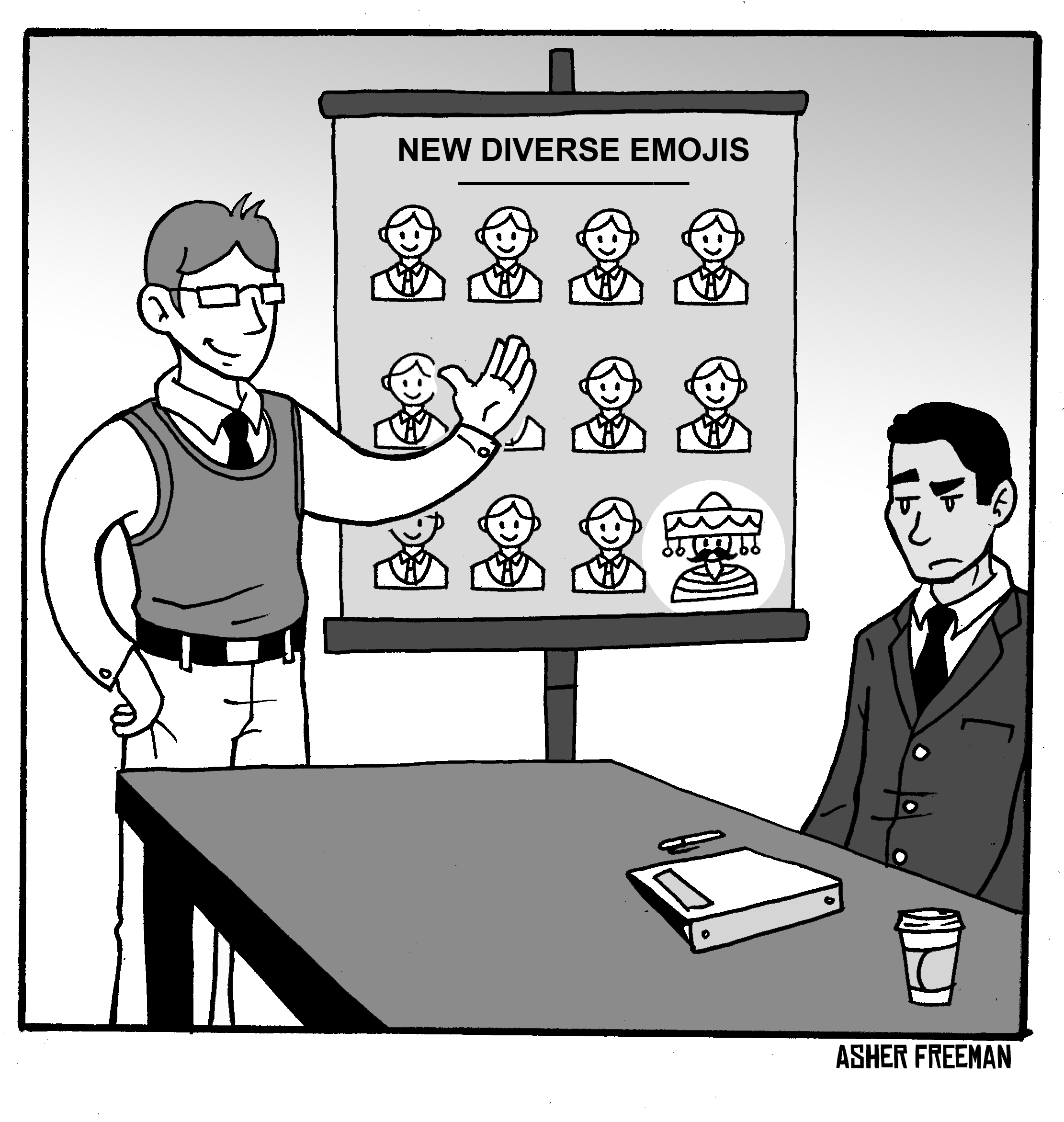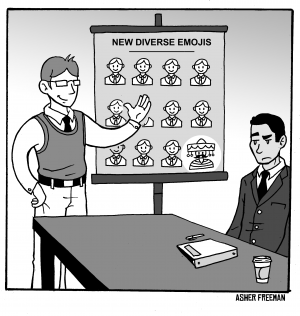One of the most popular features of an iPhone is the emoji feature that individuals can use in text messages. Rather than try and communicate tone in a tone-deaf text medium, people can include the small icons to spice up text messages. It’s become so popular, other providers have begun to try and replicate emojis.
However, Apple has come under fire in the past for its lack of diversity when it comes to emojis. There are dozens of white emojis, from dancers to hands to families. However, there are only a few that appear to be minorities, including a turban-clad Indian, an Asian guy with a skullcap and a salsa dancing Spanish lady. There is not a single black emoji.
In general, media is representative of the people who are expected to buy the product. When an individual goes to a foreign country, advertisements and media both are geared towards the culture.
Apple is a multinational corporation that has customers of many different races, ethnicities and cultures. It’s irresponsible for them to have a hand in so many markets, yet represent so few.
In response, Apple announced that it would be releasing a new line of emojis with the newest phone update. The graphics will feature a variety of different skin colors for both faces and hands.
While adding different complexions is a good first step toward promoting diversity, Apple needs to be careful not to limit diversity to only skin deep.
Making different skin colors limits people to assuming that understanding differences is just about looking at a person’s exterior. What that does not take into account is how a person’s culture and attire may play into their image.
Some may point to higher demand for white emojis, especially in America. However, African emoji company Oju Africa responded to Apple’s shortcoming by introducing a new line of emojis that they believe better represent different people for Android devices. Among the Oju Africa emojis are dark-skinned versions of a pirate, a Mr. T-style character and smiling versions of smiles with different hairstyles that it feels better represents black hair. The set of emojis have become so popular, it received mention on National Public Radio and CNN.
The Oju Africa emojis are a great step in the right direction and Apple should take them and run. Similarly to how they have options for different language keyboards, they could even have options for different keyboards with different culturally relevant symbols; people in China or Russia may have separate cultural needs than America.
Apple could also make it easier for developers to introduce new emoji options through its app store. That way, instead of having to keep up with so many populations, people could download keyboards that match them.
Diversity is an ongoing initiative for many companies, so simply calling Apple out is not our intent. However, through some subtle changes, the iPhone manufacturer can help promote a higher level of understanding.







